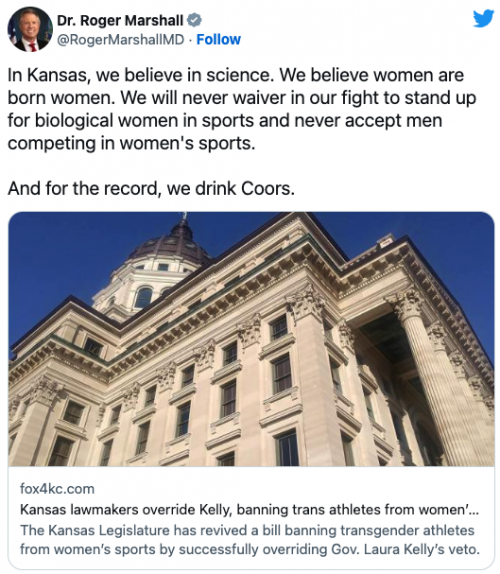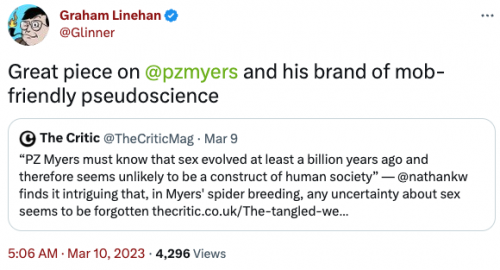Kansas has passed a law to ban transgender athletes which has a few incidental consequences.
The legislation, which takes effect July 1, requires children to participate in school activities based on the gender assigned to them at birth. The Kansas Reflector reports that challenges could require a student athlete to undergo genital inspections or require a birth certificate for proof of the child’s gender.
Following the vote, Kansas Attorney General Kris Kobach applauded the legislature’s override of the governor’s veto.
“As the father of five daughters who are involved in sports, I care deeply about the fairness in girls’ sports,” Kobach said. “If any group challenges this law in court, I will defend it vigorously. And I am confident that the law will survive any challenge.”
Caring deeply about your daughters means insisting that they be available for genital inspections. I’m not going to look, but this sounds like a scenario you’d find on PornHub.
Now here’s a weird flex.
I believe there might be a small locus of science-belief centered around Lawrence, but the rest of the state is a benighted nest of bible-thumpers, so I disagree with his bigoted claims about “biological women.” Also, I told you conservatives have recently lost what little sanity they had over “woke beer,” that is, Budweiser.
I drink neither Coors nor Bud, and I’m not going to make a choice because of an imagined “woke” connection.







